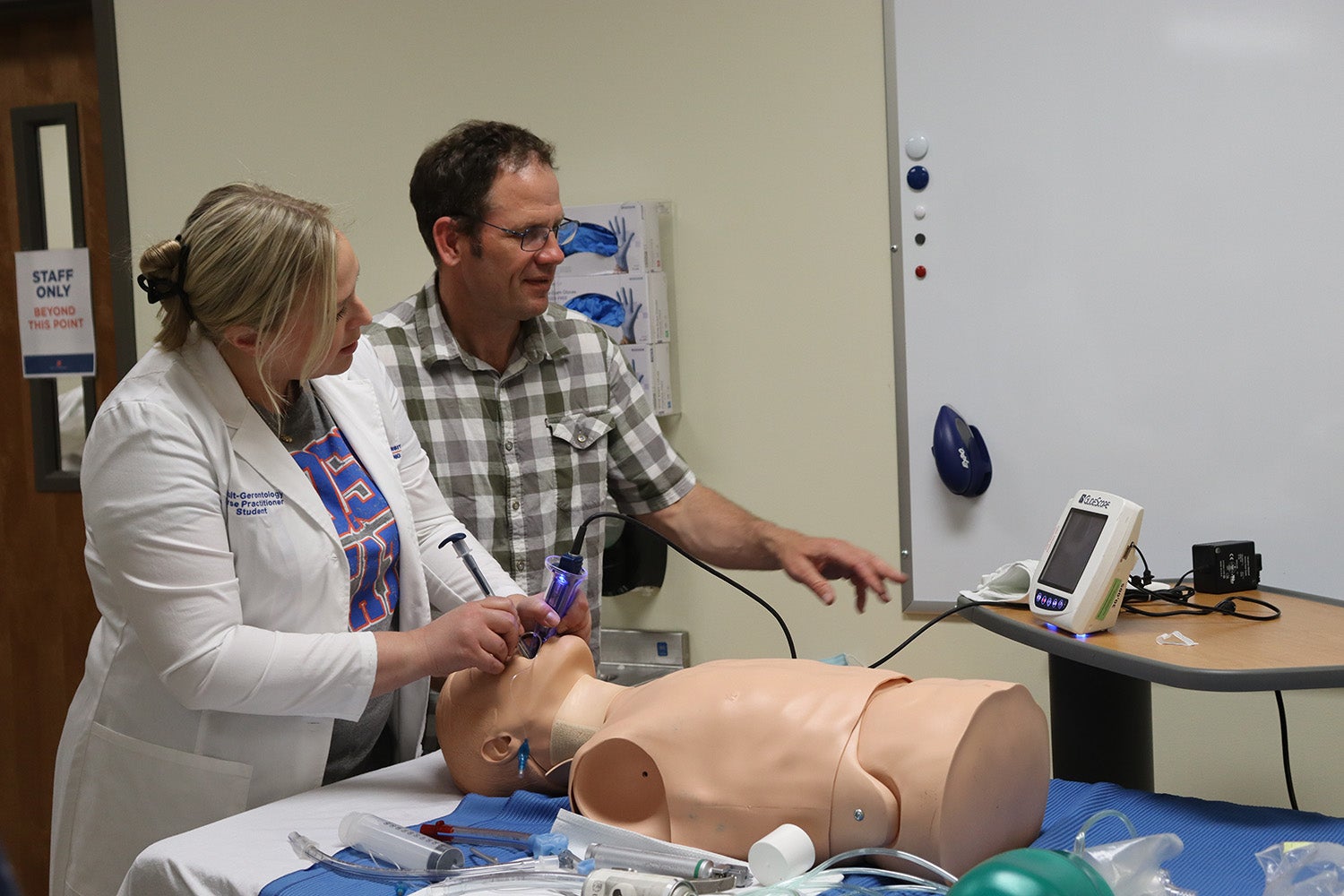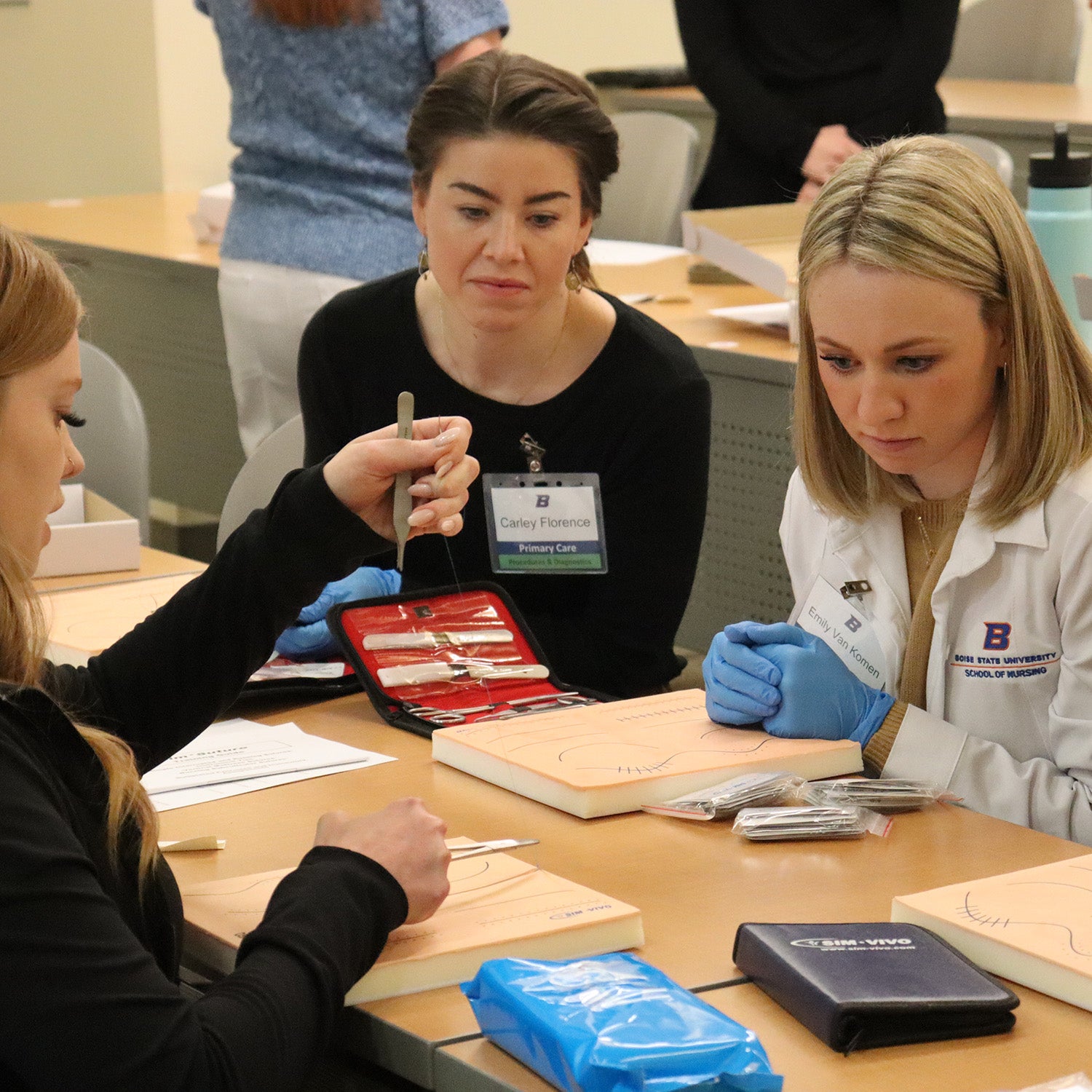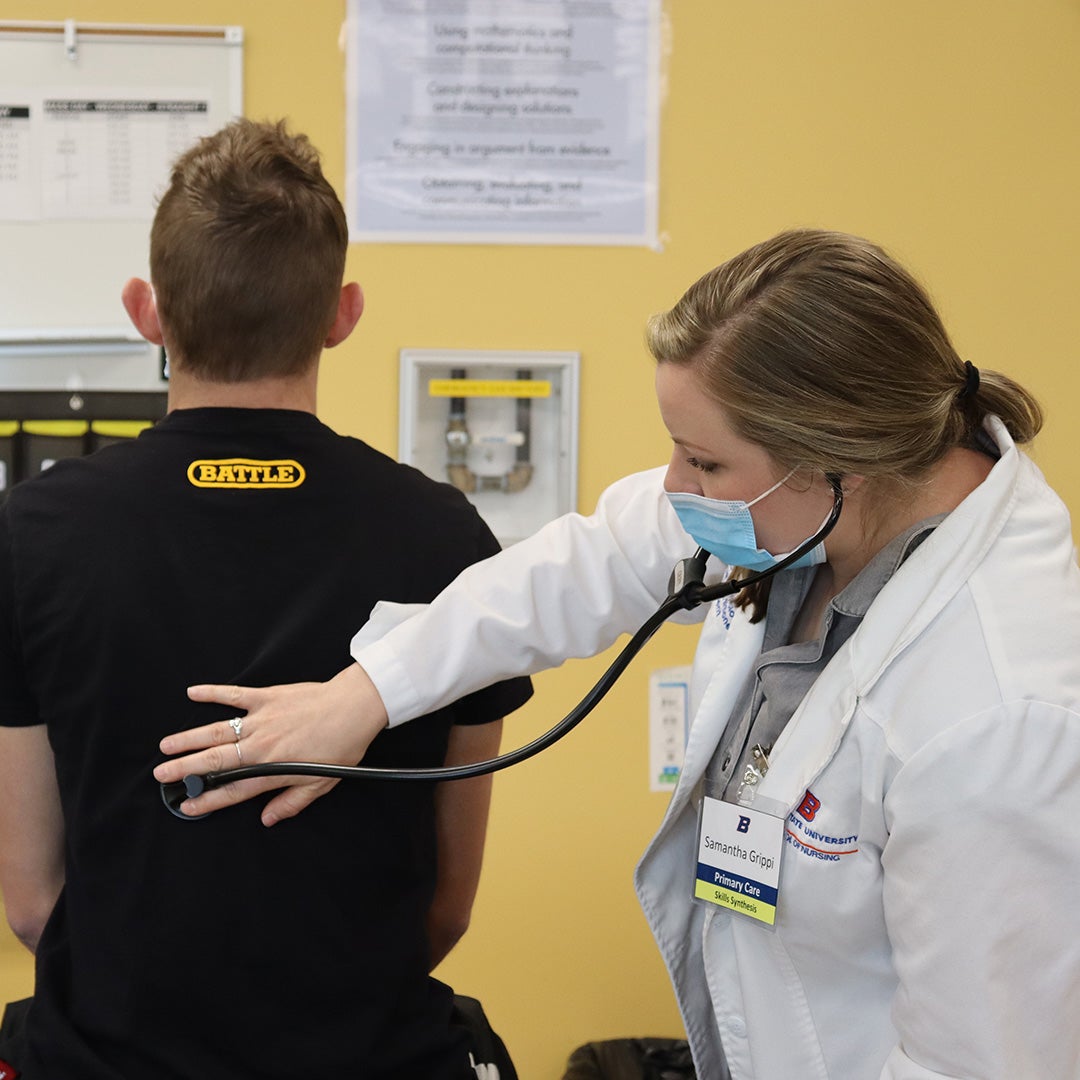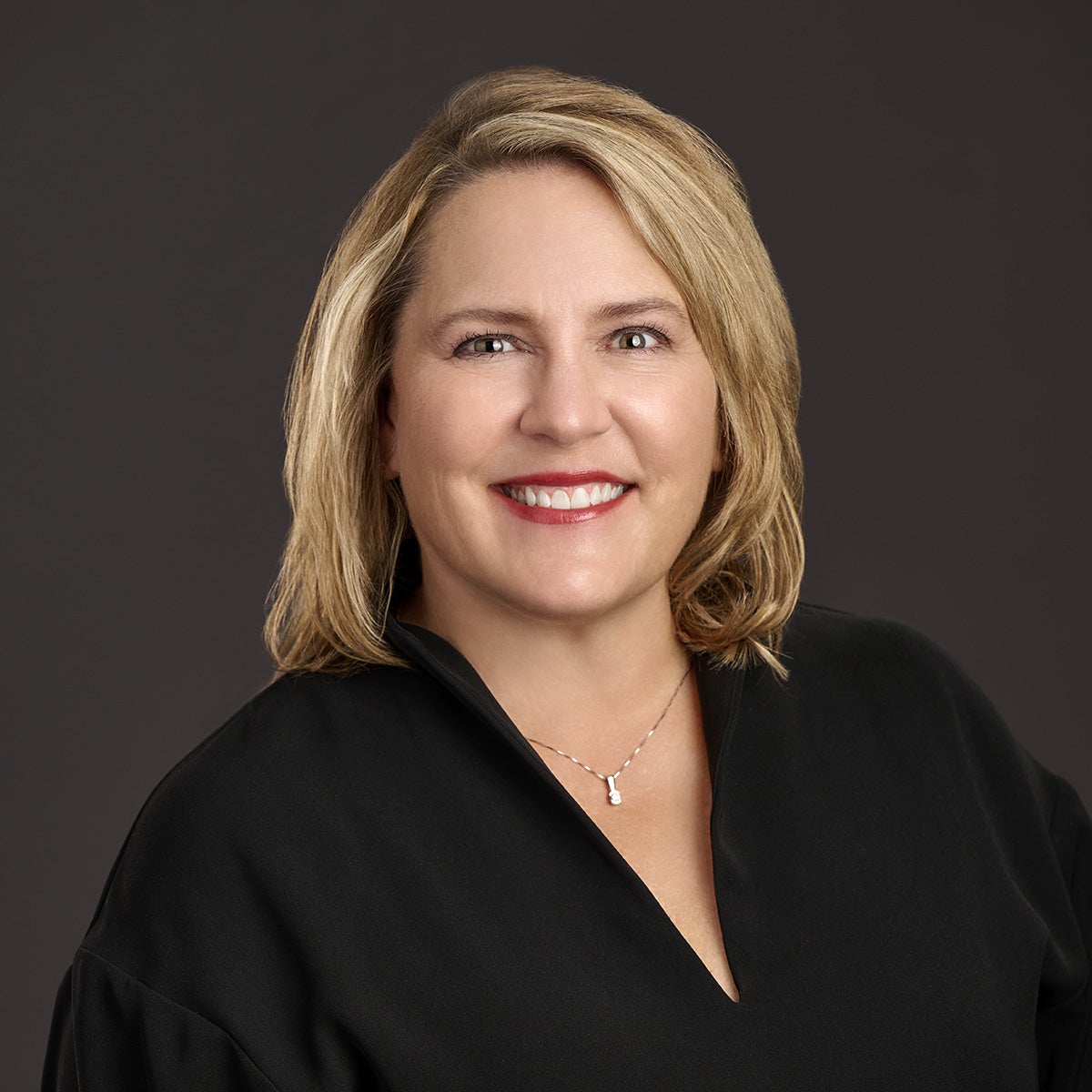
Fifty-two adult gerontology nurse practitioner students gathered on campus May 12-18 for a packed schedule of lectures, simulations and skills sessions as part of the annual intensive portion of the School of Nursing’s online nurse practitioner degree program.
This three-year master’s-level degree is for registered nurses who want to advance their practice and specialize in primary or acute care for anyone age 12 or older. Nurse practitioners undergo extensive training and, in many states across the U.S, they work independently of a doctor to diagnose and treat patients, write referrals and prescribe medication.
With such advanced knowledge required, there are some things students can’t just read about — they need hands-on experience to become truly competent, and Boise State’s curriculum affords two ways to get it: clinical rotations and the in-person summer intensives.
“There’s something about that face-to-face piece that enriches the community more than a fully online program,” said Jennifer Stock, associate professor and director of the adult gerontology nurse practitioner program. “There was so much more laughter during the summer intensives than there ever was during a Zoom meeting.”
Intensive schedule is practical and productive
For each summer during the three-year long program, students engage mostly with their peers who have the same expected graduation date (also known as their cohort) in four-to-six days of hands-on practice and in-person lectures. Although they arrive on different days, all three cohorts of students spend time on-campus simultaneously and aren’t always siloed into their own cohorts.

As one of the main organizers of the intensive schedule, instructional design analyst Kaylin Holmquist capitalizes on opportunities for cross-cohort interaction. This not only builds community among the students, but also streamlines learning and increases efficiency. For example, when first-year students use school software for patient data input for the first time, they are paired with third-year students who are already familiar with the system and can simplify the introductory process.
The intensive schedule used to be even more arduous than it currently is, but the School of Nursing constantly evolves for the students’ benefit. Holmquist spends each year curating student evaluations of every session in order to incorporate the most effective and enjoyable parts of the program into the next year’s intensive.
“Since we first started gathering student feedback in 2018, we have seen only improvements in our evaluation scores,” Holmquist said.
The result of such intentional planning is a schedule that, while jam-packed with hands-on activities and lectures, also respects the students’ need for rest. They don’t have competing assignments due in other classes during the intensive week, and “unstructured time” now exists so students can take breaks, mingle with their cohort or further practice skills in open labs.
‘Self-care is not optional’
Mindfulness is also a new addition to the rigorous summer schedule. Unfortunately, high levels of stress and fatigue are workplace standards for nurses, not to mention nurses simultaneously completing advanced practice degrees. Students now have opportunities to reflect, meditate, and focus on self-care in the midst of a demanding academic term.
For second-year student Whitney Hilton, this was the first time she’s practiced mindfulness in the past several months after a friend reminded her she needs to take care of herself the same way she would recommend her patients take care of themselves.
“I want to practice what I preach,” she said. “Self-care is not optional. Just as we care for our body, skin, teeth, etcetera, we cannot forget about our minds.”
School of Nursing lab operations specialist Rochelle Sorenson, who is also a certified meditation and mindfulness teacher, led several short sessions. Hilton was impressed by the immediate positive results she noticed, and plans on including similar activities into her life more often.
“It only took 15 minutes and yet I stood up feeling calm, peaceful, and far less stressed,” she said.
Building community in and out of the classroom
In addition to six full-time faculty, this year’s intensive also featured 22 specialty instructors selected from the community. Their wide range of skill sets allowed students to gain well-rounded competency in specialized areas such as dermatology and lumbar puncture.

Not only do community members come in to the students, but the School of Nursing also sends students out to them. In 2021, students had a unique chance to interact with and serve the greater Idaho community through an inaugural service project. Following suit this year, the third-year cohort spent a morning with program faculty at Bishop Kelly High School administering sports physicals.
“It was really satisfying to see our students identify problems in patients, which is what we want them to be able to do,” Stock said.
Another event in the community is the program social for current faculty and students, alumni and community partners. Such activities offer a more casual environment than a structured classroom setting for open dialogue between cohort members and professors, and students look forward to these opportunities each year.
“It’s always good to see them in person and see the human side of them instead of a video,” said Tony Coronado, a second-year student.
More than just a group of likeminded academics and clinicians, Boise State’s adult gerontology nurse practitioner program is the next step for many nurses to elevate their practice and better serve their community.
“We’re always looking to strive to go higher in our education, to be better as nurses,” said Coronado.
And the intensive — no matter its intensity — is just one step in that process.
Inspired by this story? Let's chat!
-

Heather Jauregui
Senior Director of Development